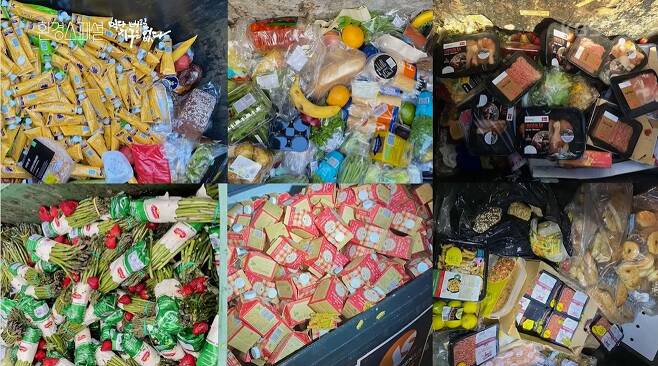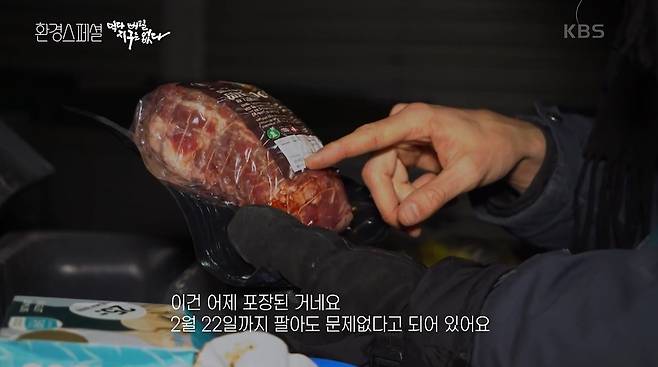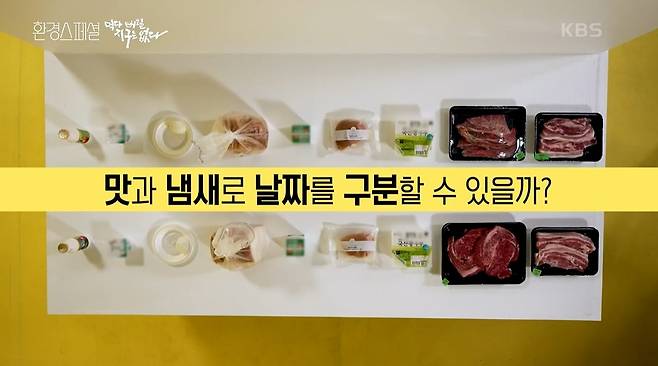


There has been a debate about food inequality. In his book Why Half the World Is Hungry (2007), UN Human Rights Commission Food Inspector Jean Ziegler pointed out the reality that more than 800 million people suffer from starvation. He argued that the solution should weaken neoliberalism in Western Europe, eliminate corruption in third World government officials, and implement education to face hunger problems directly.
The bin was filled with a variety of foods that were left unaccounted for, fresh bread and vegetables, and processed foods that had not yet been unpacked. The same was true of other supermarkets: "It happens Moy Yat in supermarkets across the West." Matt Homewood, a climate change scientist who noted the food waste issue, has been searching through trash cans for three years, informing them of how much good food is being dumped.
“I can see the madness of the food system right here, feeding the feed produced in the southern hemisphere, growing a huge amount of livestock, making meat, and putting it in the trash. We're cutting down the trees of savannah and rainforest to eventually make meat to dump in the trash." (Matt Homewood)
Matt Homewood explained that food waste and climate change were involved; as you know, the impact of the climate Danger is not equal. Many countries that have produced little carbon are paying for the rise in global temperatures: their living places have been burned, flooded, and disasters have become routine. But in a rich Europe that is out of disaster, fine food is abandoned. What does this have to do with the climate Danger?
Discarding food that can be eaten is like discharging all greenhouse gases emitted from the whole process, from manufacturing, distribution consumption, and disposal. In fact, land larger than China is used to produce crops (one billion tons per year) to be discarded; the water used to produce food to be discarded amounts to 250 trillion liters per year. In the end, resources are depleted and greenhouse gases are emitted to make food to be discarded, and the Earth is getting hotter.
Kalimantan in Indonesia is considered World's largest rainforest along with the Amazon in Brazil, with a variety of species living in Kalimantan, including enDangered species. People here have lived in the forest, coexistence with animals, but when they get to the ground, the forest has started to burn for months, and a billion tons of carbon dioxide has been released in the process. What caused the fire was a deliberate arson.
Eighty percent of the wildfires occurred as companies cleared forests to make palm oil farms, as it is cheaper to burn them. 8.5 million hectares of forest have disappeared to make palm oil farms, the most commonly used food oil in World, used in many processed foods, from confectionery, chocolate, and so on. Indonesia produces half of World’s palm oil. The dense forests are gone. People have lost their lives.
What about Korea's "food waste" situation? The daily food discarded in Korea is 14,000 tons. Of these, about 97% are being re-resourced by feed or fertilizer (97% in 2018, 96.2% in 2019, and 96.8% in 202). Fortunately, can we be relieved? The answer is 'NO': Sales of feed and fertilizer made from food waste are very low at 0.5 percent in 2018, 22.5% in 2019 and 12.4% in 2022.
The reason is a lack of demand, as the number of infectious diseases such as swine fever increases, there is a widespread perception that feeding food waste feed to animals is Dangerous, and compost is not used all year round. The reality is that there is no place to go even if you make a lot of money, and the belief that someone who needs it will be recycled will use it or rot away is naive. A huge amount of food waste goes back to damage for someone.
“It costs more to make good compost or feed, and it has to be fully incubated, and to make feed, you have to put some nutrients and filter foreign substances. So if you pay the cost, everything will be resolved? At the end, the waste water, unresourced compost and feed are floating around the Earth and pollution. " (Chairman of the Resource Circulation Social Solidarity for Kim Mi-hwa)
The average amount of food waste that one person throws away for a year is 121kg, and if you put food waste that World has abandoned in a 40-ton truck, you can turn the Earth seven times. 21% of the global freshwater is used to treat this food waste; the carbon emissions of food waste Worldwide account for 4.4 billion tons, or 8% of total carbon emissions. What to do to reduce food waste?
In Europe, Canada and elsewhere, the "consumption period" is used instead of the expiration date to reduce food waste (Korea is also scheduled to take effect on January 1, 2023). The speed of food distribution is considered to be lifelike. Recently, the competition for Tsukuba Express has become very intense, and the word "super fresh" has appeared. The reason why super-fresh marketing has emerged is the perception that freshly produced foods are better. Is it true?
Professor Huh Sun-jin of the Department of Biotechnology and Biotechnology at Chung-Ang University explained, "There is no problem with the quality, taste, or safety of products with short production dates or products with imminent shelf life." In the actual blind test, the participants could not distinguish between foods that began to be circulated Baro after production due to taste and smell, and foods whose shelf life expires today. The participants did not find any significant difference; the score difference was within the margin of error.
After the expiration date, the period of maintaining the safety of the food was 20 days of eggs, 7 days of milk, 7 days of packaged tofu, 7 days of yogurt, 2 days of food and 2 days of cream bread. The use of the consumption period has an effect of increasing the intake period by 10 to 20 percent compared to the expiration date. In fact, the food discarded due to the date marked is 1.54 trillion won.
France has enacted legislation that does not allow food waste to be discarded. The key to the 2016 Act on the Repel of Food Waste is that "unsold foods can not be deliberately made unfit for food." Thus, in France, we can no longer discard consumable food; large marts must make mandatory donations of unsold food to welfare agencies. If you break, you will be fined 10 million won.
The cost of food disposal in Korea is 8.14 trillion won per year, and the cost of food disposal by domestic food manufacturers is 530.8 billion won per year. "The cost of discarding food from the food industry is too cheap," Matt Homewood said. "It is ordinary consumers who are paying for the disposal." This is because companies include disposal costs in food prices. He stressed that such systems should be changed.
At this moment, a huge amount of food is entering the trash can. MC Kim Hyo-jin pointed out, "What we are throwing away is the Earth." Individual efforts are also needed to reduce food waste, but changes in the national and corporate levels are more urgently needed, and we hope that there will be no waste of the Earth for food to be discarded.